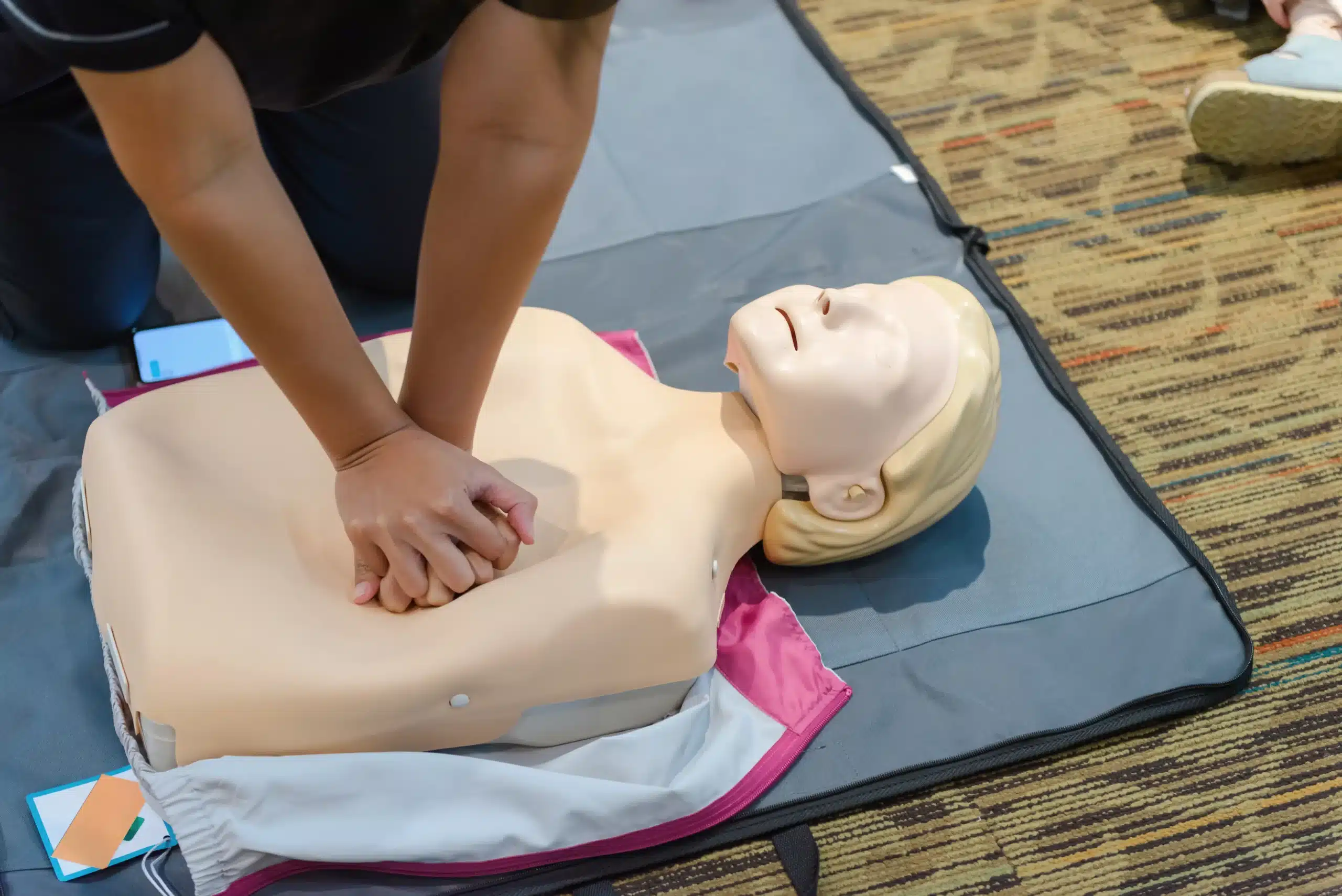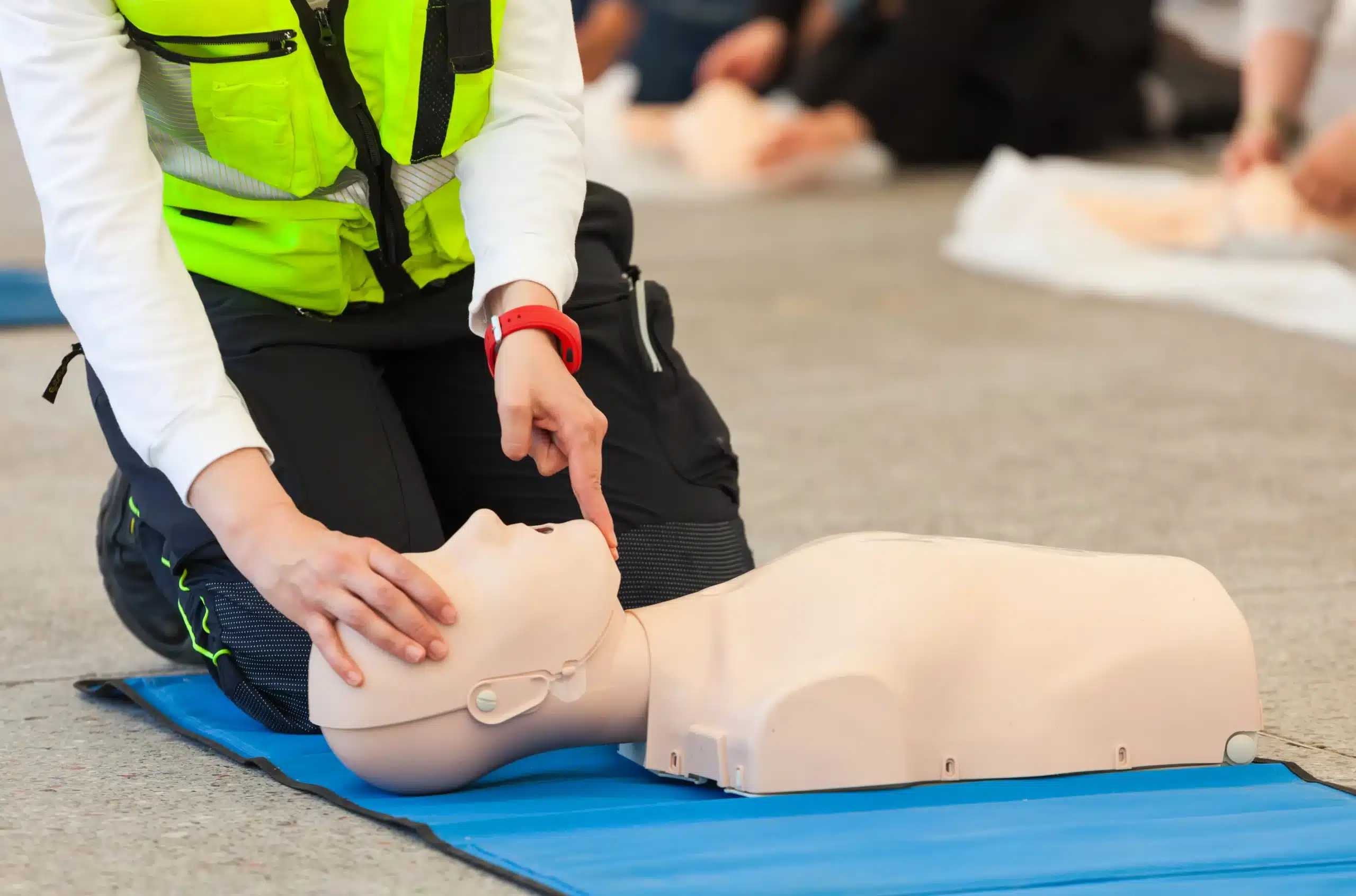The San Francisco Bay Area is known for its innovation, culture, and high cost of living, but it also faces a significant challenge: access to quality, affordable childcare. This scarcity creates a high demand for qualified childcare professionals, making it a promising career path for those passionate about working with children. If you’re considering a career in childcare, this article will explore the various childcare courses in the SF Bay Area that can equip you with the necessary skills and knowledge. We’ll delve into different program types, enrollment requirements, and potential career opportunities, providing a roadmap for your journey into this essential field. We’ll also touch on the challenges and rewards of working in childcare in the Bay Area, giving you a realistic perspective on what to expect.
Key Takeaways
- Explore diverse career paths in childcare: Discover a range of options, from running a family childcare business to working in a preschool setting. Research programs, certifications (like the CDA), and consider factors such as accreditation and hands-on experience.
- Take advantage of available support: Financial aid, scholarships, and academic and career counseling can help you succeed. Local organizations and colleges offer resources to guide you through education and licensing.
- Understand the Bay Area childcare landscape: While high demand and cost present challenges, the growing need for qualified providers creates exciting opportunities. Research the local market and available resources to prepare for a rewarding career.
What are Childcare Courses in the SF Bay Area?
Childcare courses in the San Francisco Bay Area prepare you with the skills to work with children and families. These courses cover everything from child development and psychology to practical skills like first aid and CPR. If you’re looking to get your CPR certification, check out our CPR and first-aid classes. They’re designed to fit busy schedules and meet various professional requirements.
Back to childcare courses, you’ll find programs offered through different institutions, including community colleges like City College of San Francisco, which offers a range of programs in child development and family studies. For more flexible options, online platforms such as Coursera offer various online courses and certificates. These courses cater to a range of interests, whether you’re interested in early childhood education or want to enhance your existing skills. CCSF also offers a Family Childcare Certificate program to help you launch your own childcare business. No matter your goals, investing in childcare training is a smart move, especially in the Bay Area. For those just starting out, even a babysitting certification from the American Red Cross can be a great first step. Ongoing training and education are essential for staying up-to-date and providing quality care.
Available Childcare Courses
If you’re looking to work with children, several educational paths are available. From comprehensive degree programs to specialized certifications, the options vary depending on your career goals and the age group you want to work with. Here’s a breakdown of common childcare courses available in the San Francisco Bay Area:
Early Childhood Education (ECE) Programs
Early Childhood Education (ECE) programs offer a solid foundation for anyone interested in a career focused on the education and development of young children. These programs, often found at community colleges like City College of San Francisco, cover child development, curriculum planning, and classroom management. CCSF’s Child Development and Family Studies Department, for example, offers various programs geared toward building careers in education and child development, with an emphasis on social justice and responsive relationships. ECE programs can prepare you for roles in preschools, daycare centers, and other early childhood settings.
Child Development Associate (CDA) Credential
The Child Development Associate (CDA) Credential is a nationally recognized certification for early childhood educators. It demonstrates your commitment to professional development and high-quality childcare. CCSF offers support systems for students pursuing this credential, including career counseling and a transfer center to help students transition to four-year colleges like San Francisco State University (SFSU), which offers related programs. The CDA is a valuable asset if you’re looking to advance your career in childcare.
Specialized Training
Beyond formal degree programs and certifications, many specialized training courses cater to specific needs within the childcare field. These courses can focus on areas like CPR and First Aid, child nutrition, or working with children with special needs. Organizations like Child Care Aware® of America offer resources and training opportunities to help childcare providers stay up-to-date with best practices and enhance their skills. This ongoing professional development is crucial for maintaining high-quality care and ensuring the health and safety of the children in your care. You can also find CPR and first-aid training classes at Safety Training Seminars.
Enrollment Requirements
Thinking about a career in childcare? Understanding the enrollment requirements is the first step. While specific requirements vary between programs, here’s a general overview of what you can expect in the San Francisco Bay Area.
Age and Education
Generally, you’ll need to be at least 18 years old to enroll in most childcare courses. Some programs may accept younger students for assistant roles, but leading a classroom usually requires you to be an adult. A high school diploma or equivalent is typically the minimum education requirement. Many community colleges offer early childhood education programs, including associate degrees and certificate programs. These programs provide a solid foundation in child development, curriculum planning, and classroom management. For a more advanced education, some universities offer four-year bachelor’s degrees in early childhood education. These programs explore child psychology, educational theories, and research methodologies in greater depth.
Background Checks and Health Clearances
Working with children requires a high level of trust, so background checks are standard. Be prepared to undergo a thorough background check, including fingerprinting and a criminal history review. You’ll also likely need health clearances, such as a TB test, to ensure you’re fit to work with young children. These requirements protect children’s safety and well-being and are essential for maintaining a healthy learning environment. The Child Care Resource Center offers more information on California’s specific health and safety requirements for childcare providers.
Applying
The application process is usually straightforward. Most programs require a completed application form, transcripts from your previous education, and sometimes letters of recommendation. It’s always a good idea to check the program’s website or catalog and speak with a counselor to discuss your career goals and ensure you have all the necessary documents. They can guide you through the process and answer any questions. Planning your course of study with a counselor can also help you stay on track and complete the program efficiently.
Career Opportunities
Completing childcare courses opens doors to a variety of fulfilling careers. Whether you’re passionate about shaping young minds or providing a nurturing environment, the skills you gain can lead to several career paths. Here are some options to consider:
Family Child Care Provider
If you enjoy working with children in a smaller, home-based setting, becoming a family child care provider might be a great fit. The City College of San Francisco (CCSF), for example, offers a Family Childcare Certificate program designed for individuals interested in starting or enhancing a licensed family childcare business. This program benefits both newcomers and current providers looking to refresh their skills. As a family child care provider, you’ll create a nurturing environment in your own home, fostering children’s development and learning.
Early Childhood Educator
For those drawn to classroom settings, becoming an early childhood educator offers a rewarding path. CCSF’s Child Development & Family Studies Department focuses on preparing students for careers in education and child development, emphasizing social justice and responsive relationships. Their degrees can lead to various careers in early childhood education, allowing you to work with young children in preschools, daycare centers, and other educational settings.
Childcare Center Roles
Childcare centers offer a range of positions for those with childcare training. Graduates of these programs can work as assistant teachers in childcare homes, in-home caregivers for children aged birth to 12, or as family child care providers. These roles play a vital part in supporting the development and care of young children, providing essential support to lead teachers and creating a positive learning environment. For example, CCSF’s Family Childcare Certificate prepares graduates for various roles within childcare centers.
Specialized Positions
With further education and experience, you can pursue more specialized roles within the childcare field. Positions like childcare center directors or lead teachers often require specific educational units and years of experience. These requirements can vary based on the age group you work with, such as infant, toddler, or school-age care. Resources like the Child Care Resource Center offer guidance on licensing requirements for childcare providers in California. These leadership roles allow you to shape the curriculum, manage staff, and ensure a high quality of care for the children in your center.
Course Costs and Duration
Childcare courses come with varying costs depending on several factors. Understanding these upfront will help you budget effectively as you plan your career path.
Community College vs. Private Institutions
Community colleges in the San Francisco Bay Area, like City College of San Francisco, typically offer lower tuition rates for childcare courses than private institutions. This makes them a great option for students looking for affordable training. College Tuition Compare offers a cost-effective pathway for those looking to enter the field of child development. Many community colleges, such as Mission College, are known for their accessible education options, often at a fraction of the cost of private colleges. This can be a significant advantage if you’re balancing work and other financial commitments. Niche’s college rankings can also help you research and compare program costs.
Full-time vs. Part-time
Your schedule will also influence the overall cost of your childcare education. Full-time programs often have higher overall tuition fees than part-time programs, though you may complete them faster. This is something to consider if you’re juggling work, family, or other responsibilities alongside your studies. The Children’s Council offers resources discussing the cost of childcare and education in the Bay Area.
Online vs. In-person
Online courses have become increasingly popular, offering flexibility and often lower costs than traditional in-person classes. Online programs frequently eliminate the need for commuting and sometimes have lower materials fees, making them a more budget-friendly choice. Tootris offers a report on the cost of childcare in California, highlighting the rise of online learning options. The Children’s Council of San Francisco also emphasizes the growing availability of online courses, making childcare education more accessible.
Key Skills You’ll Learn
Childcare courses equip you with a diverse skill set to nurture and educate young children. These skills are essential for creating a positive and stimulating learning environment. Here’s a glimpse into some key areas you’ll explore:
Child Development and Psychology
Understanding how children grow and learn is fundamental to effective childcare. Child development programs explore the psychological and emotional growth of children. You’ll learn about developmental milestones, environmental influences on child behavior, and strategies to support healthy development. This knowledge helps you tailor your approach to each child’s unique needs and create age-appropriate activities. For a deeper look, check out CCSF’s resources on child development and family studies.
Health and Safety
The safety and well-being of children are paramount in any childcare setting. Training in pediatric health and safety is a cornerstone of childcare courses, often including mandatory training hours. These courses cover health protocols, safety measures, and emergency response strategies. You’ll learn how to create a safe environment, prevent accidents, and respond effectively in emergencies, giving you the confidence and skills to handle various situations and ensure children’s safety.
Curriculum Planning and Implementation
Creating engaging and educational experiences for children requires careful planning. Childcare courses guide you through developing a curriculum aligned with developmental standards. You’ll learn to design age-appropriate activities and learning experiences that foster cognitive, social, and emotional development. This includes selecting appropriate materials, structuring lessons, and assessing children’s progress. Effective curriculum planning ensures children are stimulated, challenged, and supported in their learning.
Communication and Family Engagement
Building strong relationships with families is crucial for successful childcare. Courses emphasize effective communication strategies with parents and guardians. You’ll learn how to build responsive relationships, understand family needs, and involve them in their child’s learning. Open communication fosters trust and collaboration, creating a supportive network for the child. This includes regular updates, parent-teacher conferences, and strategies for addressing concerns.
Choosing the Right Course
Finding the right childcare course depends on several factors, including your career goals, preferred learning style, and available resources. Let’s break down how to choose the best fit.
Accreditation and Licensing
Accreditation matters. It ensures your program meets specific quality standards and may be required for certain job opportunities or further education. Look for programs accredited by recognized organizations like the NAEYC. Licensing requirements for childcare providers vary by state and sometimes even locally. Check with your state’s licensing board to understand the necessary credentials for your chosen career path. For example, the City College of San Francisco (CCSF) Child Development and Family Studies Department offers various programs designed to prepare students for careers in education and child development.
Practical Experience
Hands-on experience is invaluable in childcare. Many programs incorporate practicums or internships, giving you real-world experience working with children in various settings. Ask about opportunities to observe or volunteer in childcare settings to gain practical experience and confirm your interest in the field. CCSF’s Family Childcare Certificate program, for instance, provides the coursework and practical skills needed to run a licensed family childcare business.
Aligning with Career Goals
Think about your long-term career aspirations. Do you dream of opening your own daycare, working in a preschool setting, or specializing in early intervention services? Your career goals will significantly influence the type of training you need. If you’re interested in working with children, explore CCSF’s Child Development classes. San Francisco residents may qualify for free tuition. Graduates of CCSF’s Family Childcare Certificate program are prepared for roles as family childcare providers, assistants in family childcare homes, or in-home caregivers for children aged birth to 12. Research different career paths within childcare and choose a program that aligns with your interests and ambitions.
Support Resources
Navigating the world of childcare education often involves finding the right support systems. Thankfully, the San Francisco Bay Area offers several resources to help you finance your education, succeed in your courses, and launch your career.
Financial Aid and Scholarships
Financing your education is often a primary concern. For families in the San Francisco Bay Area, several financial aid options are available. For example, families earning up to 110% of the Area Median Income (AMI) qualify for fully-funded tuition, making programs free. Those earning between 111% and 150% of the AMI can receive a tuition credit for 50% off published rates at any program within the Early Learning For All network. Exploring these options can make childcare education more accessible.
Academic Support
Academic support is key to thriving in your childcare courses. City College of San Francisco (CCSF), for instance, offers a variety of support systems, including career assessments and counseling services to help you define your career path. The college also provides a dedicated career center, a Teacher Prep Center, on-campus tutoring, and a transfer center to support students transitioning to four-year colleges.
Career Counseling and Job Placement
Once you’ve completed your coursework, career counseling and job placement services can help you transition into the workforce. Organizations like the Child Care Initiative Project (CCIP) offer free training and resources to prospective childcare providers in certain California counties, including help with licensing, health and safety training, and business strategies. Similar resources exist throughout the state and can provide valuable support as you launch your childcare career. Look for local organizations and agencies specializing in childcare development and workforce support.
Childcare Challenges in the SF Bay Area
Finding reliable and affordable childcare is a major hurdle for families in the San Francisco Bay Area. Let’s explore some of the key challenges.
Meeting Demand for Quality Care
Across the Bay Area, the demand for quality childcare often surpasses the available supply. Many parents, especially those with infants and toddlers, find themselves on long waitlists, adding stress to an already demanding time. The challenge isn’t simply about the number of available spots; it’s also about the quality of care. Parents are looking for nurturing environments with qualified caregivers who can support their children’s development and align with their family’s values.
Improving Affordability and Accessibility
Even when families locate an open childcare slot, the cost can be a significant barrier. Childcare in San Francisco is a substantial expense for many families, sometimes making it difficult to work or pursue further education. While subsidy programs can help offset costs, they often don’t cover the full expense, leaving families struggling to make ends meet. The high cost of living in the Bay Area combined with childcare expenses creates a real financial burden. Business closures within the childcare sector further complicate the issue, shrinking the number of available spots and intensifying competition for limited resources. Expanding access to subsidies and creating more affordable childcare options are essential for supporting families and ensuring all children have access to quality care.
Start Your Childcare Education Journey
Thinking about a career in childcare? It’s a rewarding path, and the San Francisco Bay Area has tons of educational programs to get you started. A great place to begin your search is the City College of San Francisco (CCSF). Their Child Development and Family Studies Department offers programs focused on preparing students for education and child development careers, with an emphasis on social justice and responsive relationships. This means you’ll gain practical skills and a culturally sensitive approach to childcare.
CCSF also has a Family Childcare Certificate program if you’re interested in running your own family childcare business. It’s designed for both beginners and experienced providers looking to refresh their skills. For those who prefer online learning, platforms like Coursera offer a flexible way to improve your skills and advance your career with courses and certificates in child development, covering topics from early childhood education to child psychology.
Finally, remember that becoming a licensed childcare provider in California has specific requirements. The good news is there are resources available to help you through the licensing process. With the high demand for childcare in California, it’s a great time to consider this career.
Related Articles
- EMSA Child Care Health & Safety – San Francisco Bay Area CPR Classes
- CPR Courses Near Me: Your Complete Guide – San Francisco Bay Area CPR Classes
- CPR Training in Northern California: A Complete Guide – San Francisco Bay Area CPR Classes
- CPR & First-aid Classes in Bay Area, CA – San Francisco Bay Area CPR Classes
- NRP Classes in San Francisco, Bay Area – San Francisco Bay Area CPR Classes
Frequently Asked Questions
What types of childcare certifications are available in the San Francisco Bay Area? You can find a range of certifications, from the nationally recognized Child Development Associate (CDA) credential to specialized certifications in CPR/First Aid and other areas. Early Childhood Education (ECE) programs at community colleges offer degrees and certificates, providing a strong foundation for various childcare roles. The best choice depends on your career goals.
How do I choose the right childcare course for me? Consider your career aspirations, preferred learning style (online or in-person), and budget. Look for accredited programs that offer practical experience through internships or practicums. Speaking with a counselor at a community college or vocational school can help you explore options and find the best fit.
What kind of financial assistance is available for childcare courses? Several financial aid options and scholarships are available, especially for students attending community colleges. Some programs offer free or reduced tuition based on income levels. Check with the financial aid office at the institution you’re interested in to explore available options.
What career opportunities are available after completing childcare courses? Completing childcare courses opens doors to various roles, including family childcare provider, early childhood educator, assistant teacher, and in-home caregiver. With further education and experience, you can pursue leadership positions like childcare center director or lead teacher.
What are the biggest challenges facing childcare in the San Francisco Bay Area? High demand and affordability are significant challenges. Long waitlists for childcare programs are common, and the cost of care can be a substantial burden for families. Efforts are underway to increase access to affordable, high-quality childcare through subsidies and other initiatives.







